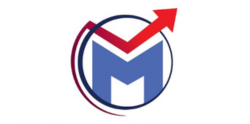Facebook Ads for the Hospitality Industry: Best Practices
Facebook Ads for the Hospitality Industry: Best Practices
Facebook Ads offer powerful tools for hospitality businesses to attract guests, promote services, and enhance brand visibility. In this guide, we’ll delve into the best practices and strategies specifically designed for the hospitality industry.
1. Introduction to Facebook Ads for Hospitality
Facebook Ads provide hospitality businesses with unique opportunities to target and engage potential guests across various demographics and interests. Key advantages include:
Advantages:
- Targeting Capabilities: Reach specific demographics such as travelers, food enthusiasts, or local residents interested in dining and staycation options.
- Visual Appeal: Utilize images, videos, and carousel ads to showcase accommodations, dining options, amenities, and guest experiences.
- Engagement Opportunities: Foster interaction through comments, likes, shares, and direct messages to address inquiries and build relationships.
- Direct Bookings: Drive traffic to booking pages or encourage direct inquiries and reservations through lead forms.
2. Targeting the Right Audience
Effective audience targeting is crucial for hospitality businesses to reach potential guests with relevant interests and demographics:
Targeting Strategies:
- Demographics: Target travelers based on age, location, income level, and travel preferences (e.g., luxury travel, budget travel, family vacations).
- Interest-Based Targeting: Reach users interested in specific travel destinations, dining experiences, local attractions, or leisure activities.
- Behavioral Targeting: Target users who have shown intent to travel, explore dining options, or engage with hospitality-related content on Facebook.
3. Showcasing Hospitality Offerings
Use compelling ad formats to showcase accommodations, dining options, amenities, and unique experiences that appeal to potential guests:
Recommended Ad Formats:
- Carousel Ads: Highlight room types, suites, amenities, or dining menus to cater to different guest preferences.
- Video Ads: Feature virtual tours, guest testimonials, or behind-the-scenes looks to engage and inspire potential guests.
- Special Offers: Promote seasonal packages, discounted stays, exclusive dining experiences, or spa treatments to incentivize bookings.
- Event Promotion: Advertise special events, holiday packages, weddings, or corporate retreats with RSVP options.
4. Leveraging User-Generated Content (UGC)
Harness the power of user-generated content to build trust and authenticity among potential guests:
UGC Strategies:
- Guest Reviews: Feature positive reviews, testimonials, and guest photos to showcase real-life experiences and customer satisfaction.
- Social Proof: Highlight guest-generated content such as photos and videos shared during their stay or dining experience.
- Influencer Collaborations: Partner with travel influencers or local food bloggers to create authentic content that resonates with their followers and promotes hospitality offerings.
5. Driving Engagement and Interaction
Encourage interaction and engagement with potential guests to build relationships and influence booking decisions:
Engagement Strategies:
- Interactive Ads: Use polls, quizzes, or contests related to travel preferences, dining choices, or local attractions to engage users and collect leads.
- Q&A Sessions: Host live Q&A sessions or virtual tours to provide insights into accommodations, amenities, dining options, or event venues.
- Customer Support: Respond promptly to inquiries and comments to provide personalized assistance and address guest concerns.
6. Measuring Success and Optimization
Monitor key metrics to assess the effectiveness of Facebook Ads campaigns and optimize for better performance:
Key Metrics:
- Click-Through Rate (CTR): Measure ad engagement and effectiveness in driving traffic to booking pages or reservation forms.
- Conversion Rate: Track the number of bookings, reservations, or inquiries generated from Facebook Ads to evaluate ROI.
- Cost per Acquisition (CPA): Calculate the cost-effectiveness of acquiring new guests through Facebook Ads compared to other marketing channels.
- Audience Insights: Use Facebook Insights to gain valuable demographic and behavioral data to refine targeting strategies and ad content.
7. Case Studies and Success Stories
Explore examples of hospitality businesses that have successfully leveraged Facebook Ads to achieve business objectives:
Case Studies:
- Luxury Resort A: Increased direct bookings by 30% through targeted Facebook Ads promoting exclusive resort packages and spa services.
- Restaurant Chain B: Expanded brand awareness and table reservations by showcasing seasonal menus and dining experiences through visually appealing carousel ads.
- Event Venue C: Boosted event bookings and venue rentals by 40% using video ads featuring client testimonials and event highlights.
8. Conclusion
Facebook Ads present hospitality businesses with a versatile and effective platform to attract guests, enhance brand visibility, and drive bookings. By implementing targeted advertising strategies, showcasing compelling hospitality offerings, and fostering meaningful interactions with potential guests, hospitality marketers can maximize their marketing efforts and achieve sustainable growth in a competitive industry.
Related Posts
Leave a Reply Cancel reply
Categories
MahbubOsmane.com is reader-supported, some products displayed may earn us a commission if you purchase through our links. MahbubOsmane.com is a participant in the Amazon Services LLC Associates Program. Learn more.

